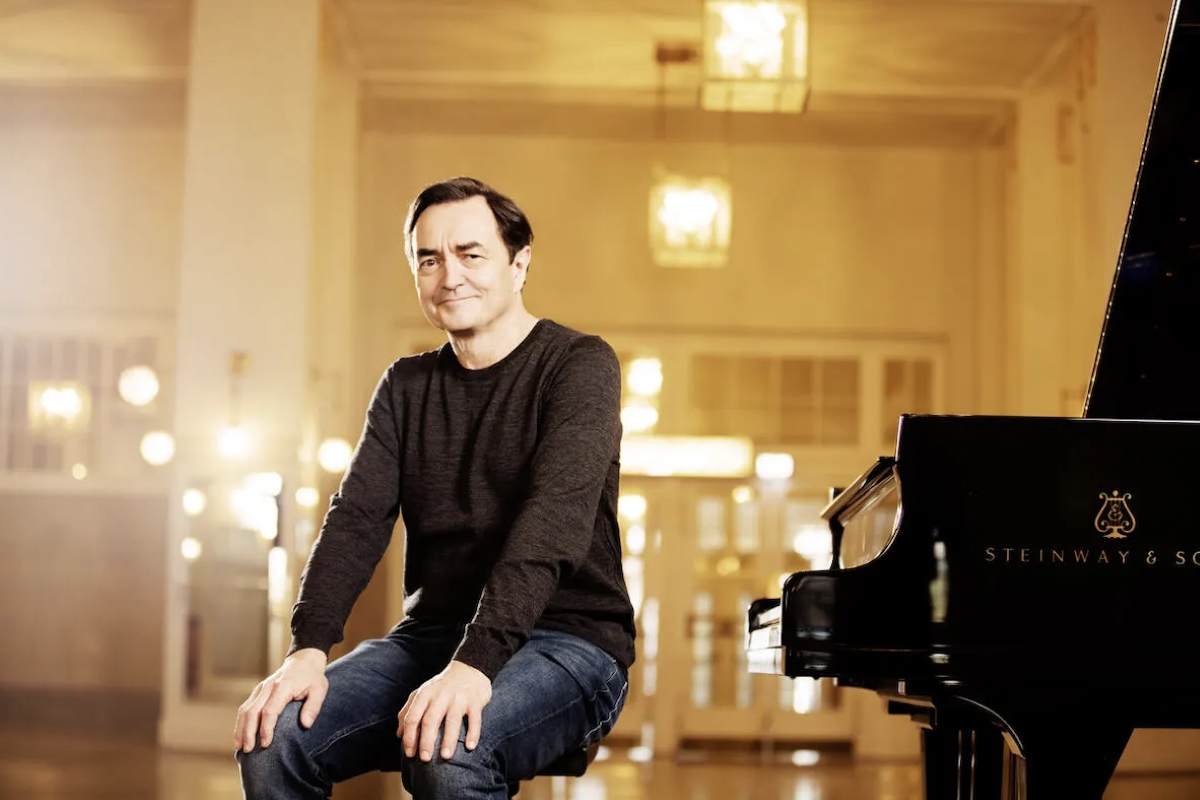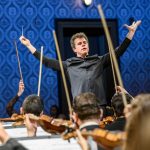interview by Michal Rezek
Two weeks ago, while driving between concerts on the German autobahn, I passed the time by listening to music on the car radio. One of the pieces that came on was Maurice Ravel’s Jeux d’eau. The pianist played with a beautiful, crystal-clear sound; the structure of all the harmonies and colors was absolutely transparent, and the music flowed with natural unity in terms of rhythm and tempo. Everything was so simple and unpretentious, yet entirely consistent and effortlessly perfect.
I thought to myself: judging by the playing style, this must be a British pianist—perhaps Italian, or maybe German. But certainly not a French pianist. When the piece ended, the radio announcer said: “That was Pierre-Laurent Aimard at the piano.” So once again, I was wrong…
In today’s world of global integration, musical interpretation has reached a point where everyone seeks an optimal, ideal interpretation that will be universally accepted. Even though every artist is a unique individual, the idea of the ideal interpretation is becoming unified, and the differences in the approach to a piece are somewhat standardized. Isn’t it a pity that the diversity of the past is disappearing in today’s world, and that individuality and uniqueness are fading from performance?
I do agree . And the danger is that imitation and conformity have often replaced originality and force of identity. I see that partly because of an education mostly based on conventional models more than on creativity.
Each of us can try to make choices (in the case of interpreters, choices in repertoire, programs or interpretation) that are guided by our cultural vision and not simply by the guidance of the “commercial market”.
Over the course of your long and rich career, you’ve established yourself as an artist who plays virtually everything imaginable. Is there any type of music you would never play? And how have your repertoire preferences evolved over the years? Do you still have any unfulfilled musical dreams?
The wish of constantly enlarging our horizons can materialize by a repertoire in permanent expansion. My joy is to discover and learn pieces new for me and to share these discoveries. But I try though to avoid pieces where I find that what I could bring is inappropriate. In any case the goal is not to play “everything”, which is both impossible but also a non-sense, but rather to choose what can represent a certain vision of the world or of the life – to carry an identity.
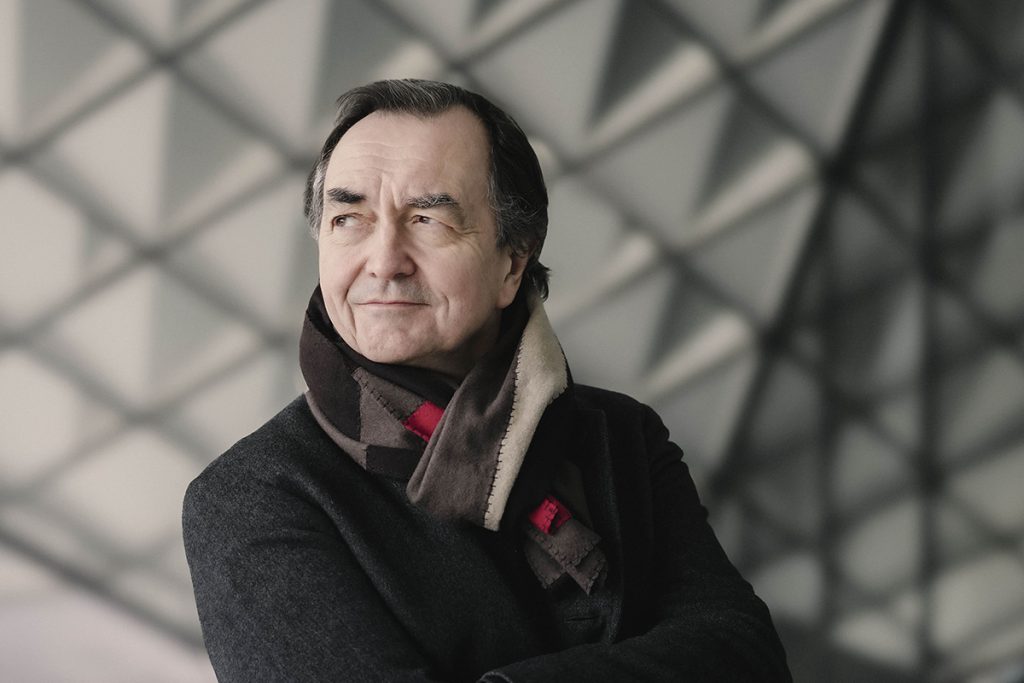
On July 2, 2025, you will perform in the Czech Republic at the Smetana’s Litomyšl Festival, accompanied by the Czech Philharmonic conducted by Tomáš Netopil, with Ravel’s Piano Concerto in G major, one of your signature works. I know you also perform Dvořák’s Piano Concerto in G minor. So my question is fairly logical: Would you be interested in including works by Czech composers in one of your future concerts here? How do you perceive the piano music of, for example, Leoš Janáček or Bohuslav Martinů?
I find Janacek , with his total originality, his burning passion and his row freshness, overwhelming. The dramatism of his operas is irresistible. I played his capriccio, his concertino, his Sonata, Im Nebel, Pohadka , the violin sonata… but should I dare to play his music in his country?
When I listen to your playing, I sense an absolute balance between emotional elements and rational control. What takes the most time when studying a new piece? Creating and sensing the emotional aspects, or searching for the optimal interpretation in relation to the composer?
Like a life, an interpretation is a research for balance and integration. Between emotional expression and reflexive control, between collective rules and personal aspirations. There are no conflicts but mutual enrichment between the respect of a text and the personnel emotions and fantasy that can reveal its richnesses.
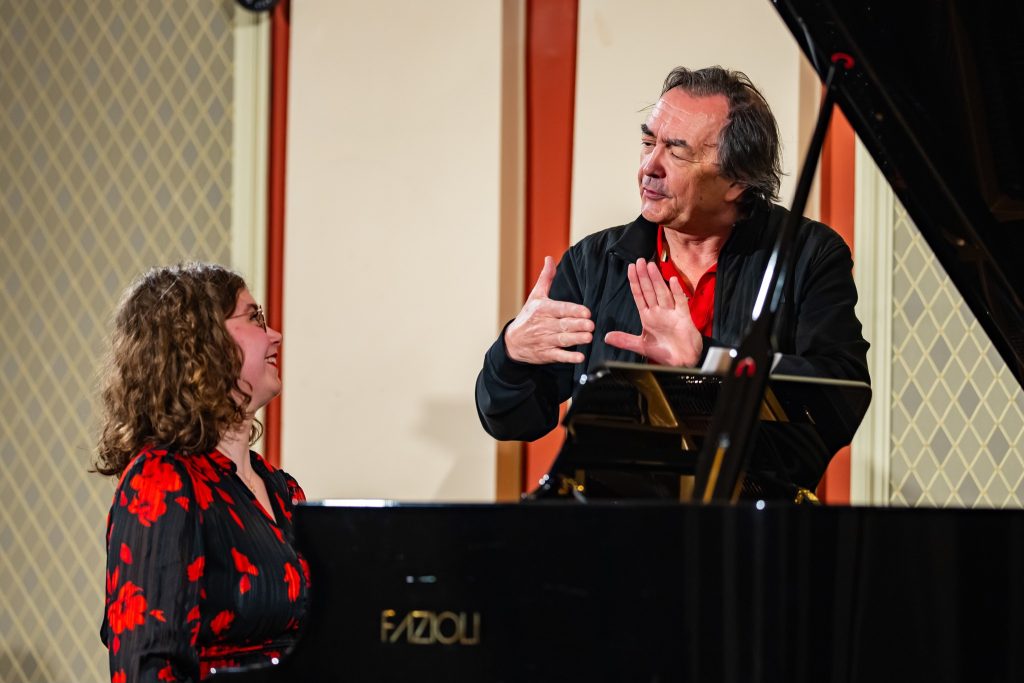
Some pieces have been with you on stage for several decades. Does your view of your own interpretation of such works change? Do you ever suddenly find a piece completely different, and simply give it a new character?
This depends first on the complexity of the pieces. Are they works with a clear and understandable identity or are some dimensions of the composition hidden, intricate, ambiguous? Sometimes it takes a part of a life to assemble the components of a complex work. But also your sight on a work can evolute because of your own changes, nourished by all the events of a life, by a better knowledge of the cultural context in which the pieces were composed, or by the enrichment of musicological works.
A basic professional question: we all try to find the optimal fingering for a given passage so that it feels natural for the hand, sounds beautiful, and helps us remember a musical structure logically. Do you change some fingerings over the years, or do you stick with the ones you came up with when you first studied the piece?
It is not always easy to change a fingering as we trained the body to memorize it! But as we are constantly looking for a more appropriate way to phrase, articulate, color, to find the right “gesture” can induce changing some fingerings.
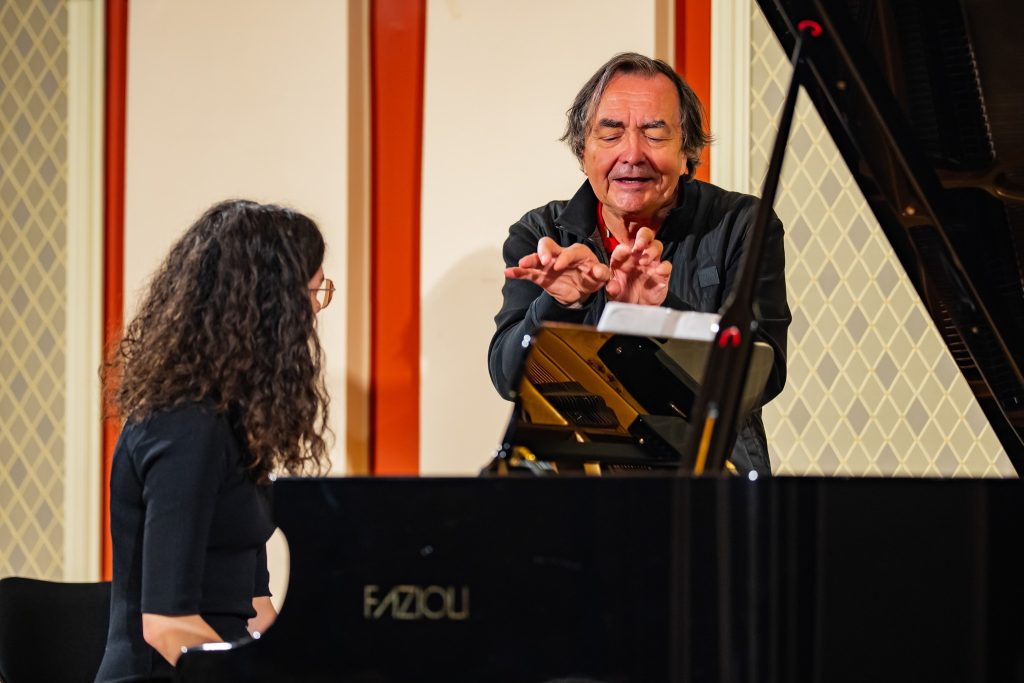
Of course, we’re always striving for the ideal interpretation, to satisfy both the composer and the listener. But does it happen that the atmosphere created by the audience during a concert affects you in such a way that you change something, play something completely differently than you’re used to? How important is the element of interpretive uniqueness and unrepeatability to you during a performance?
A performance is unique, as a moment of collective exchange, and because of the differences of circumstances – by which I mean the acoustic, the instruments, one’s own state. None of these constitutive parts are similar from one concert to another one and to copy a pre-existing rendition is therefore sterile.
Each time, we reinvent the event, depending of all its components, and this is why the stage is a place inviting to permanent creativity.
Maestro, thank you for taking the time for this interview. Our readers and listeners are looking forward to your interpretation of Ravel’s Piano Concerto in G at the Smetana’s Litomyšl Festival on July 2, 2025.


